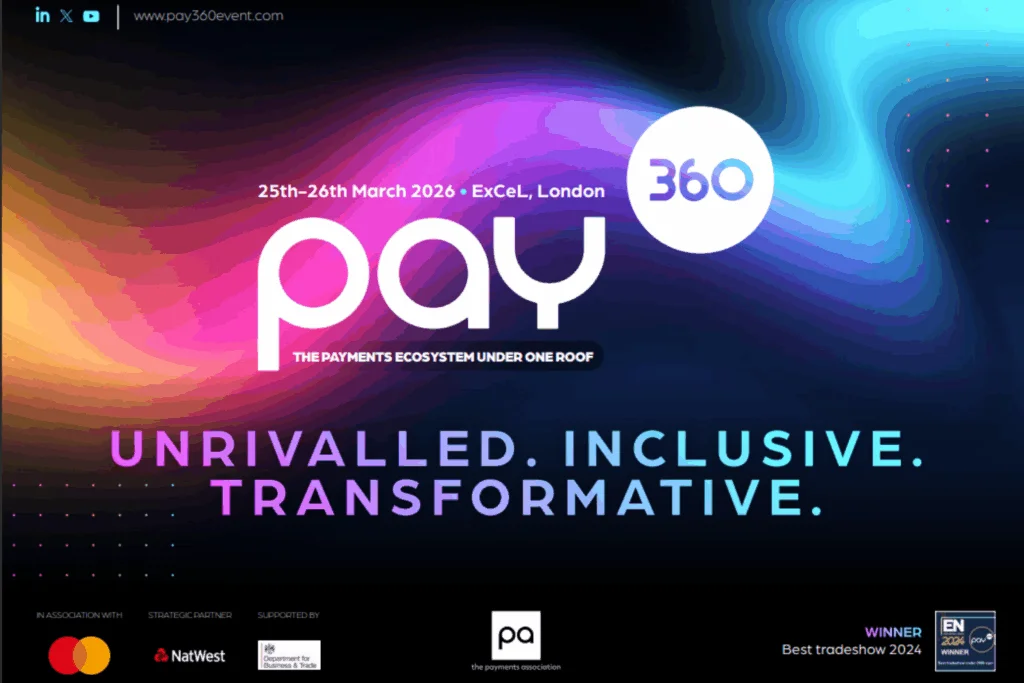
What Every FinTech Hiring Manager Needs to Know to Stay Competitive
From AI-native platforms to hyper-personalised digital banking, the FinTech arms race is accelerating. But while capital flows and customer demand remain high, one thing is in dangerously short supply: the right software engineering talent.
As a leading FinTech recruitment business with offices in New York and London, Harrington Starr partners with some of the industry’s fastest-growing firms. We’ve seen first-hand how technology leaders are rethinking hiring strategies to secure the skill sets that truly move the needle.
This blog explores the most sought-after FinTech software engineering skills in 2025, why they matter, and how businesses can compete when the best candidates are being snapped up before they hit the market.
What Software Engineering Skills Are FinTechs Desperately Searching for in 2025?
The Financial Technology engineering hiring landscape has evolved from “nice-to-have” skillsets to mission-critical capabilities. Based on current trends and real-time client demand, these are the top skills in the highest demand:
1. Cloud-Native Development and Architecture
Platforms like AWS, Azure, and Google Cloud are no longer just infrastructure choices; they’re product accelerators. Companies need engineers who can build cloud-native microservices, implement serverless functions, and deploy scalable architectures that handle everything from high-frequency trading to real-time fraud detection.
Key roles in demand:
- Cloud Engineers
- DevOps/Platform Engineers
- Site Reliability Engineers
- Backend Engineers with AWS/GCP expertise
Tip from us: Cloud capability isn’t just about certifications. Top talent brings opinionated architecture experience and knows how to build resilient, not just functional, systems.
Is Your FinTech Engineering Team AI-Ready?
AI is no longer an R&D buzzword; it’s embedded in how FinTechs do business. Whether it's personalising user journeys or building autonomous trading platforms, Machine Learning Engineers and AI Developers are essential.
In-demand skills for AI-native FinTechs include:
- Python (TensorFlow, PyTorch, Scikit-learn)
- Data Engineering for ML pipelines
- Generative AI integration
- MLOps frameworks (MLflow, Kubeflow)
- Model validation, governance, and bias testing
The most successful FinTechs are now hiring engineers who can build with AI, not just analyse it.
Need to scale AI capability fast? Harrington Starr can deliver qualified engineers with both model-building and ML Ops experience, ready to hit the ground running (permanent or contract).
What Programming Languages Are Driving FinTech Innovation Right Now?
Some languages remain timeless in FinTech, others are rising stars. Here's the breakdown:
Python – Dominates in quantitative finance, data science, and API development. Still the #1 language for fast prototyping and AI models.
Java and Kotlin – Key for backend enterprise systems and Android finance apps. Java remains essential for legacy integration.
Go (Golang) – Popular for building low-latency, high-performance trading systems and real-time analytics tools.
Rust – Emerging in crypto, blockchain, and performance-critical systems for its memory safety and concurrency.
JavaScript/TypeScript – Vital for FinTech front-end development, especially in React-based dashboards and mobile hybrid apps.
It’s not just about knowing the language, it’s about knowing how to use it in FinTech-specific environments.
The Tools and Frameworks FinTech Engineers Need to Know in 2025
It's not just about languages, it's about what you can build with them.
In 2025, FinTechs are leaning on engineers who know how to deliver robust, secure, and scalable systems fast. That means fluency in:
Docker & Kubernetes – For containerisation and orchestration
Terraform & Ansible – For infrastructure as code
Kafka & RabbitMQ – For real-time messaging pipelines
FastAPI & Flask – For lightweight, high-performance APIs
React & React Native – For building cross-platform front ends
Jenkins, GitHub Actions, CircleCI – For continuous integration/deployment (CI/CD)
Engineers who can own the lifecycle from code to cloud are in highest demand, and they don’t want to join teams using tools from five years ago.
How Important Are Domain-Specific Skills vs. General Engineering Talent?
Many FinTech leaders ask: Should we hire a brilliant engineer and teach them the domain, or hold out for someone who already knows the space?
The answer: both, depending on what you’re building.
If you're developing a core payments engine or risk modelling system, domain experience in finance, compliance, or trading is non-negotiable. For front-end platforms or customer experience tools, a smart, adaptable engineer can ramp up quickly, even from outside the sector.
But here’s the truth:
The most competitive hires in 2025 are “T-shaped” engineers, deep in one specialism, broad across FinTech use cases.
Is Your Tech Stack Costing You Candidates?
One of the most overlooked factors in attracting top software engineers? Your tech stack.
We’ve seen talented candidates walk away from interview processes because they didn’t want to work with outdated tools or architecture.
If your platform still runs on a monolith, your team uses waterfall, and deployments take weeks, not hours, you’re not just falling behind in delivery. You’re shrinking your candidate pool.
At Harrington Starr, we help FinTech businesses audit how their stack and workflow are impacting hiring success, and deliver talent that can help you modernise from the inside out.
What Software Engineering Skills Are Essential for FinTech Cybersecurity?
As fraud sophistication grows and regulatory scrutiny tightens, every engineer in FinTech needs at least a baseline understanding of security-first development.
Top skills in demand right now include:
- Secure coding practices (OWASP Top 10, threat modelling)
- Experience integrating with AML and KYC tools
- DevSecOps and infrastructure-as-code
- Understanding of authentication protocols (OAuth2, SAML)
For high-growth businesses, a security-aware engineering culture is no longer optional, it’s a board-level priority.
How Valuable Are Full-Stack Engineers in 2025?
The myth that full-stack engineers are “jacks of all trades, masters of none” is long dead.
In 2025’s FinTech landscape, full-stack engineers bring cost efficiency, flexibility, and product intuition, especially in startups and scaleups where roles overlap.
We’re seeing heavy demand for:
- Full-stack React + Node engineers
- Engineers who can prototype product MVPs end-to-end
- Professionals with experience working closely with Product and UX teams
While hyper-specialists are still vital in large platforms, full-stack flexibility is often the growth lever in early-stage FinTechs.
What Hiring Managers Get Wrong When Screening Software Engineers
A brilliant FinTech product can fail because of one thing: bad hires. And that’s often due to misaligned screening.
Common hiring mistakes include:
- Over-indexing on pedigree: Prioritising candidates from big banks or FAANG firms over startup-ready talent.
- Experience obsession: Insisting on 10+ years of experience when a 5-year engineer can outperform them technically.
- Overlooking soft skills: A technically brilliant engineer who can’t collaborate or communicate is a liability in a regulated, agile FinTech.
What actually matters?
- Their ability to solve real-world problems
- Experience working in cross-functional teams
- Comfort with code review, DevOps tools, and agile release cycles
- Whether they’ve built and shipped working FinTech products
Our team understands how to qualify candidates not just on CVs, but on delivery impact, stakeholder alignment, and engineering behaviours.
What Actually Attracts Great Engineers to Your FinTech, Beyond the Job Spec
Job specs alone don’t attract top engineers; your story, purpose, and delivery culture do.
We work with hundreds of candidates a month, and here’s what they’re really asking before they commit to a FinTech role:
- “Will I get to work on meaningful, high-impact code?”
- “What’s the team structure like, flat or hierarchical?”
- “Are releases weekly or quarterly?”
- “Is the tech debt under control, or am I putting out fires?”
It’s no longer about just salary or remote flexibility. Engineers want:
- Autonomy: Are they trusted to build?
- Clarity: Are product and engineering aligned?
- Ownership: Will they ship real features, not ticket-churn?
The FinTechs that win talent in 2025 are those that treat engineers as product partners, not just coders.
We can help you position your opportunity to match what top developers are really looking for, because we talk to them daily.
Where Are FinTechs Hiring Engineers in 2025, and Why It Matters
With offices in London, New York, and Belfast, we’ve had a front-row seat to shifting hiring patterns.
Still the European FinTech hub. The most competitive engineers are looking for hybrid roles, high-growth startups, or mission-driven work. Backend and platform engineers in the £80k–£130k range are heavily contested.
Wall Street meets Web3. Demand is rising for engineers who can work across traditional finance stacks and emerging technologies. Cloud DevOps, data-heavy engineers, and AI/ML talent are gold dust here.
An under-tapped goldmine. With a rich academic pipeline and lower salary bands, clients are increasingly building nearshore engineering teams here, especially in infrastructure and QA.
Want to compare permanent vs. contract FinTech options across the UK and US markets? Harrington Starr can help you build a cross-border engineering hiring strategy that delivers.
How Fast Are FinTechs Hiring Engineers in 2025, And Why Speed Matters
Top-tier engineers, especially those with cloud-native, AI, or low-latency system experience, are not sitting on the market for long. In fact, many are off the market within 10 to 14 days of looking.
Yet, despite this well-known fact, we still see FinTech firms losing out because of:
- Four or more interview stages
- Delayed internal approvals
- Poor follow-up communication
- Generic or uncompetitive offers
If you're asking candidates to do a code test, wait two weeks, attend three interviews, and then hang tight for a final sign-off, you’re not just losing them, you’re advertising dysfunction.
Smart FinTechs are adopting streamlined hiring workflows:
- 1 x technical test
- 1 x panel interview
- Offer within 48 hours
They also pre-agree on salary ranges and timelines internally, so they don’t waste time or damage brand perception.
Harrington Starr helps clients design fast, frictionless interview processes tailored to the engineering talent market. Let us help you reduce time-to-hire without sacrificing quality.
What’s the Most Overlooked FinTech Engineering Skill in 2025?
Communication.
The best engineers aren’t just code writers; they’re problem solvers, collaborators, and stakeholders. In fast-moving FinTech environments, where tech decisions impact customers and regulators alike, engineers must be:
- Comfortable in standups with product and business teams
- Able to explain technical decisions to non-technical leaders
- Collaborative in remote-first or hybrid models
Soft skills are no longer just “nice to have.” They’re core to delivery success.
How Can FinTechs Compete for Software Engineers Without Overpaying?
We hear it constantly: “We just lost our top candidate to a unicorn offering 30% more.”
So how do you stay competitive?
Speed up hiring decisions. The best candidates are on and off the market in days.
Sell the mission, not just the salary. Engineers want to build products with purpose.
Offer technical autonomy. Talented developers don’t want micromanagement; they want ownership.
Leverage contractors strategically. When speed matters more than retention, use specialists to unlock delivery milestones fast.
Struggling to compete with Big Tech on budget? Harrington Starr helps FinTechs craft compelling hiring strategies that win on purpose, team, and culture.
Are You Measuring the Right Hiring Metrics?
Many FinTechs obsess over time-to-hire and cost-per-hire, but miss the more important KPIs:
- Code quality post-hire
- Engineer tenure and promotion rate
- Impact on product velocity
- Candidate experience NPS
Measuring only the recruitment funnel, not the long-term value of engineering hires, is where many teams go wrong.
Our clients see real success when they treat recruitment as a strategic function, not an operational one.
Winning the Software Engineering Talent War in FinTech
2025 is not the year to play it safe with your engineering hiring strategy.
The competition for software talent is fierce. The skill requirements are evolving faster than many internal teams can keep up. And the cost of a wrong hire, or a missed one, is higher than ever.
That’s where Harrington Starr comes in. We don’t just send CVs. We act as your FinTech hiring partner, bringing you:
- Pre-qualified engineers with deep domain knowledge
- Strategic guidance on contract vs perm hiring
- Local and international reach (London, Belfast, New York)
- Insight into what’s driving talent behaviour today
Let’s build your next great hire together. Get in touch to find out how we can help you secure the most in-demand software engineering skills in FinTech.
The Skills Gap Problem: Why FinTech Engineering Teams Are Falling Behind
You’ve got a product roadmap. You’ve got funding. But what you might not have is the skillset to execute at speed.
One of the biggest issues we’re seeing is internal engineering teams trying to keep up with:
- The shift to cloud-native platforms
- Integrating AI into existing architectures
- Meeting regulatory compliance and security expectations
- Adopting DevOps/MLOps practices
In many cases, the current team simply doesn’t have the time or capability to reskill.
The best FinTech leaders are being honest:
“We need external engineering talent to fill the gaps, fast.”
Strategic hiring isn't just about capacity. It’s about futureproofing your product. That often means bringing in experienced specialists who can upskill your internal team as they deliver.
Harrington Starr can help you build hybrid engineering teams that combine long-term internal growth with short-term delivery horsepower.







